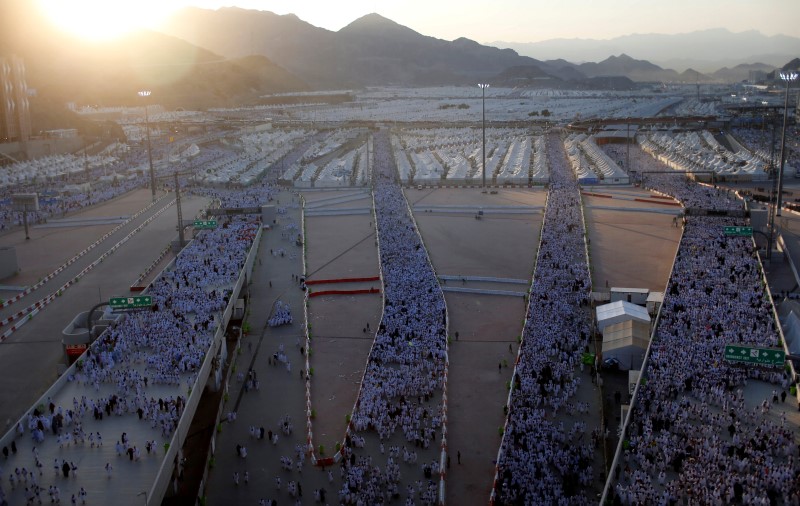MINA, Saudi Arabia (Reuters) - Saudi Arabia's King Salman said on Tuesday the haj should not be used to achieve sectarian or political aims, remarks likely to be seen as aimed at rival Iran, which is involved in a public quarrel with Riyadh over the management of the pilgrimage.
Speaking to dignitaries from Muslim countries at a reception at the royal court in Mina, outside the Muslim holy city of Mecca, the king added that Muslims should unite to fight what he called an epidemic of "extremism".
The remarks, coinciding with the Muslim Eid al-Adha (feast of sacrifice) holiday, follow an escalating war of words between Shi'ite Muslim Iran and Sunni Saudi Arabia since a crush at the annual haj pilgrimage a year ago in which hundreds of pilgrims, many of them Iranians, died.
Iranian Supreme Leader Ayatollah Ali Khamenei, in a message published last week, said Saudi authorities had "murdered" some of them, describing Saudi rulers as godless and irreligious.
Responding to Khamenei, Saudi Arabia's top religious authority, the Grand Mufti, described Iran's leaders as not Muslims.
The king said extremism damaged Islamic unity.
"The kingdom utterly rejects that this great ritual turns to achieving political goals or sectarian disputes," he said.
"Exaggeration (in religion) and extremism are abhorred... when it enters the body of the Muslim nation, it spoils its unity, future and image before the world. There is no salvation from this affliction except to uproot it without mercy, and with the unity of Muslims, to destroy this epidemic," he added.
Traditional Wahhabi doctrine in Saudi Arabia is ultra-conservative, viewing Shi'ites as heretical, but the authorities welcome them to the haj and accepts Iranian visits to the Saudi-based Organisation of Islamic Cooperation.
Saudi Arabia and Iran back opposing sides in Syria's civil war and a list of other conflicts across the Middle East, including Yemen.

Tensions between the two countries have been rising since Saudi Arabia cut ties with Iran in January following the storming of its embassy in Tehran, itself a response to the Saudi execution of dissident Shi'ite cleric Nimr al-Nimr.